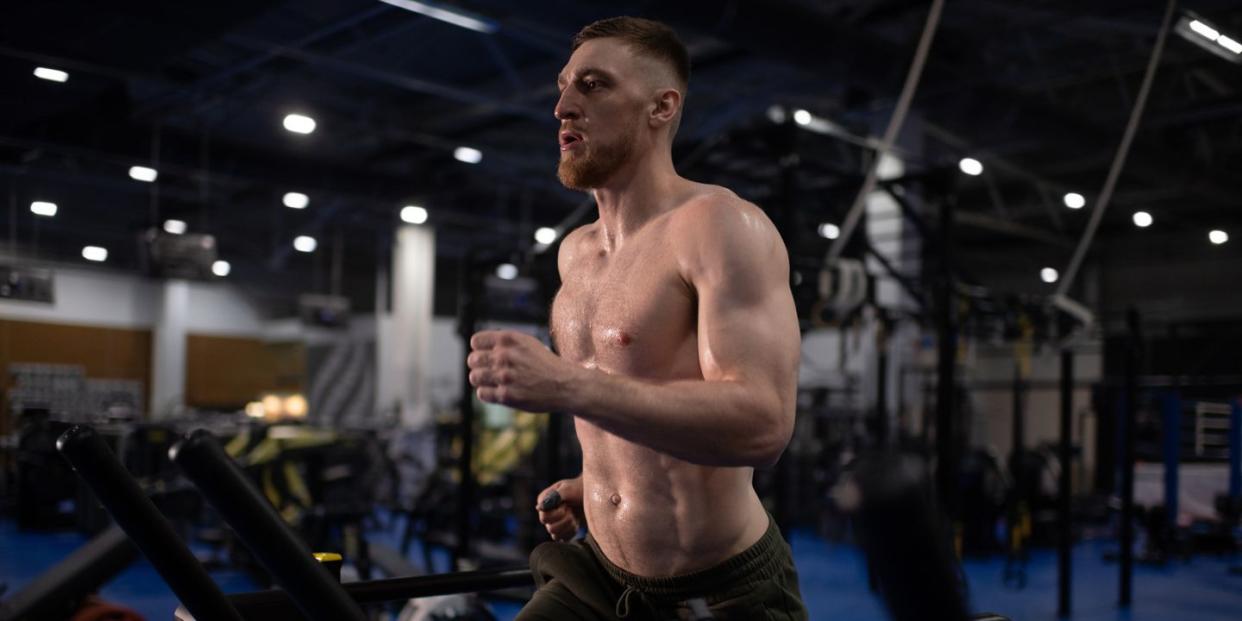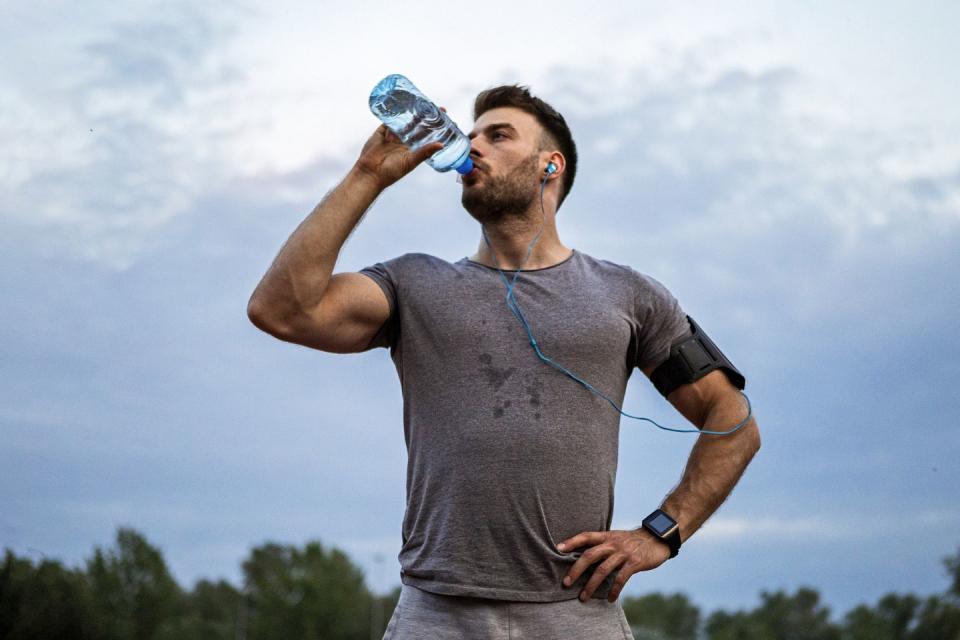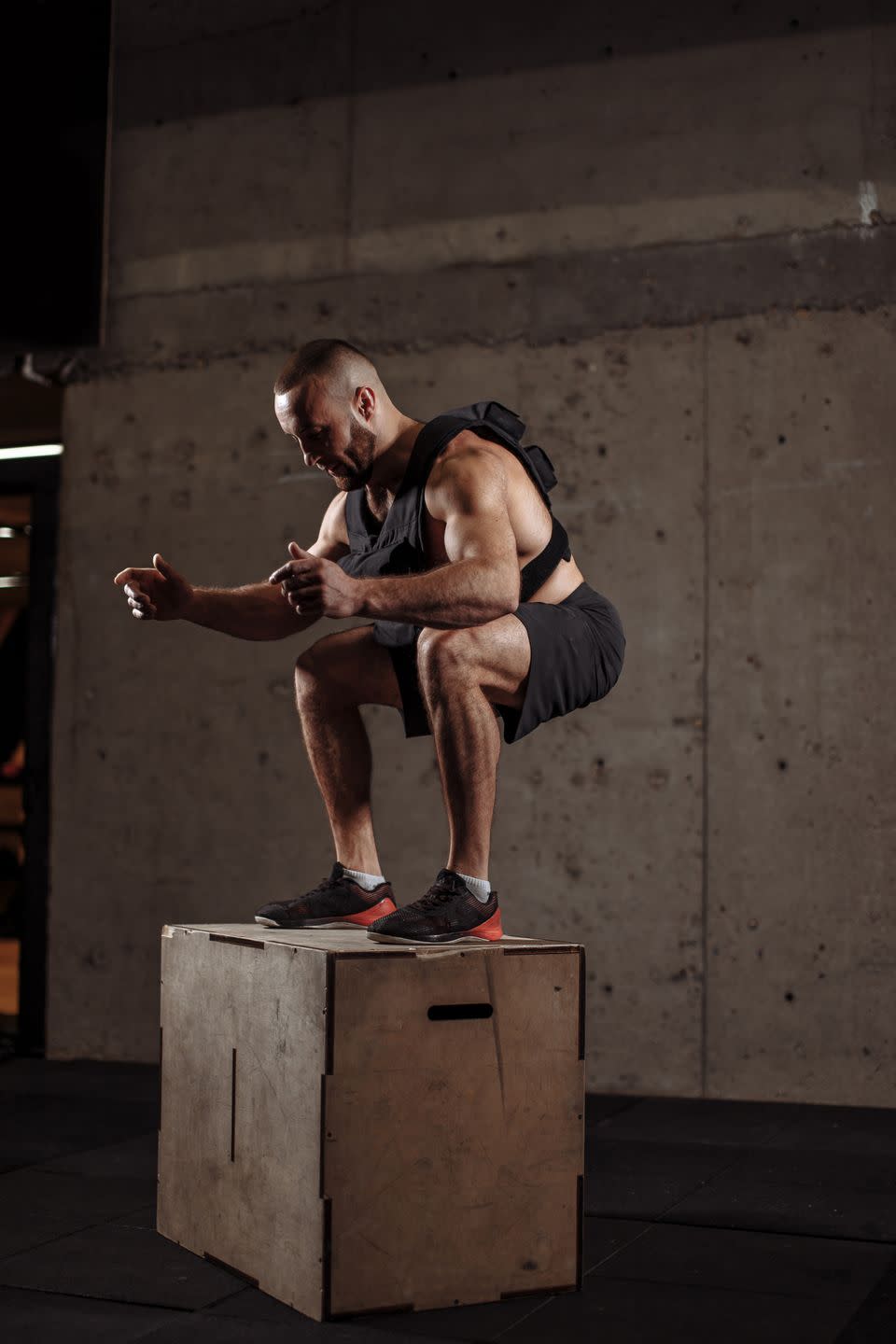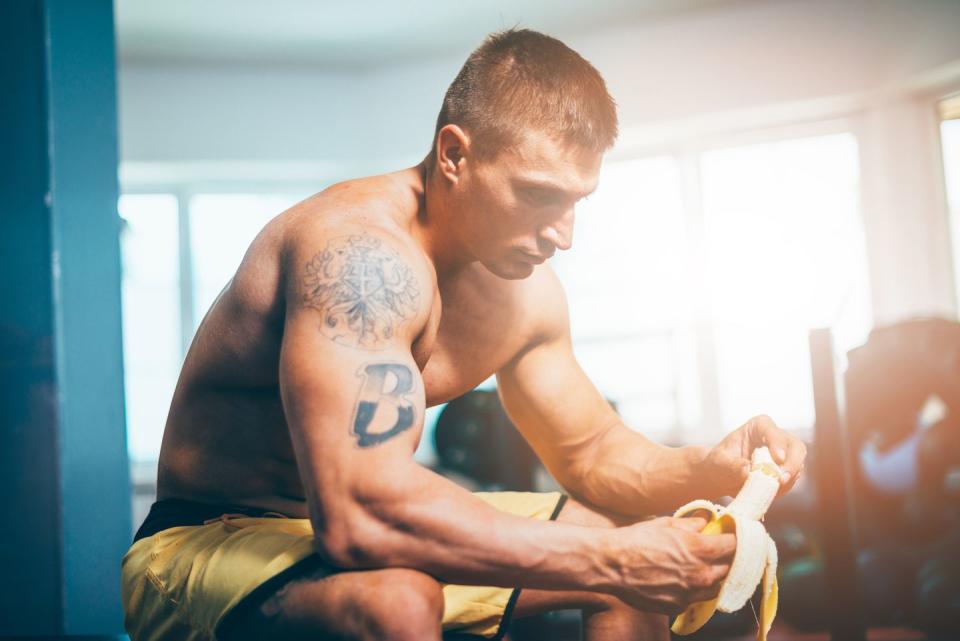Does Cardio Kill Gains?

Historically, lifers who frequented the squat rack have had an aversion to cardio – whether that's burpees, treadmill sprints or a session on the stationary bikes. However, in recent years, fitness trends have shifted. It's now fairly normal to see someone pull a deadlift PB and then head straight out on a 5k run.
'Hybrid fitness' may be all the rage now, but you might still hear bodybuilders talk about avoiding cardio for fear of it ruining their muscle gains. But is the old-school bro science really true — does cardio kill gains?

What the Experts Say
Interviewed on The Proof podcast with Simon Hill, exercise scientist Alyssa Olenick PhD explains that the likelihood of cardio negatively effecting your gains is doubtful.
'I think it's really important to make the distinction that cardio doesn't 100% blunt your hypertrophy,' says Olenick. 'For trained individuals, it essentially slows the rate of it, or it's slightly less than what it would be if you were 100% weight training.'
The exercise scientist adds, 'There is a meta analysis on high-intensity training that kind of shows that it might impact it, but then you look at the effect sizes, and the protocols that they use, and the order they did them in, and you're like — it probably actually doesn't really wash.'
Olenick says that the evidence we have available on cardio's effect on hypertrophy suggests that high-intensity training might impair muscle growth very slightly more than low-intensity cardio training, however the effects are still negligible.
Thankfully, the gym hearsay against cardio may have finally been put to bed, and we may be well advised to include a well-rounded approach to our training programme in order to support our cardiovascular health. Numerous studies support that cardiovascular exercise is beneficial in supporting heart health, wellbeing, insulin sensitivity and reducing the risk of illness. So really, the pay off is more than the negligible negative effects on muscle mass.
How Do I Balance Cardio and Weights for Hybrid Fitness?

Olenick says she advises a 'seasons approach' to training, and will focus on different goals at different times, reducing volume in one area in favour of another rather than stopping cardio or weights entirely. 'I only have so much I can recover from in a single given week,' says Olenick, 'I like to think of hybrid fitness as a very long-term version of fitness, and I know that's hard for a lot of people to think of, is that you're not going up and down all the time, you're trying to build and stack over time.'
Cardio or Weights First?
This depends on your training history, experience, age, exercise tolerance, goals and of course, preferences. The order of your programme will ideally be reverse engineered from your training goals. You want to maximise on your high energy levels at the beginning of a session for your higher priority goals. Olenick shared that long endurance cardio exercises can be more tiring than strength and deplete glycogen more, therefore making it more difficult to complete your lifts after cardio.
So, to avoid your lifts being effected negatively by your cardio, you can space out your cardio and lifting sessions by completing one in the morning, and one in the afternoon says Olenick, 'There was a paper that came out in I think 2021 that found that if you separate the session by at least 20 minutes in advanced trainees, that it reduced the impact on one rep max strength and then for beginners and intermediate trainees it didn't matter if you did them back to back.'
Olenick continues to mention that there's other research that suggests that you can separate them by 2-8 hours, so as a rule of thumb she recommends: 'Strength first, cardio after or strength in the morning, cardio in the afternoon... If you need to do cardio in the afternoon, do strength in the evening. Put that space between, and then if you're going to do them in the same session [and the session is going to be longer than 60 minutes], that's where I think we need to be more focused on nutrition too.'
If you need to complete both in the same session or day: placing weights first before cardio is preferential, especially if you are including heavy lifts.

Nutrition to Prevent Muscle Loss
In order to preserve your muscle mass when training cardio, focusing on fuelling will reduce the risk of muscle loss. Especially focusing on consuming enough calories throughout the day, and enough protein. Ensuring your nutrition supports your training will allow you to push yourself harder, and recover more effectively. This is even more important when training weights and cardio concurrently with high weekly volume.
For larger meals before training, according to a review published by the ISSN, 'It takes about four hours for carbohydrates to be digested and begin being stored as muscle and liver glycogen.' Therefore, for optimal performance, pre-exercise meals of a proportionate balance of protein, carbohydrates and fats should be eaten 4-6 hours before exercise. If this isn't possible, don't sweat it, but at least an hour before should allow enough time for it to digest and not cause stomach issues.
For your snacks before training, research has suggested that eating a light carbohydrate and protein snack 30 to 60 minutes prior to exercise can improve performance. This could be:
Cereal/energy bars and a protein source like yoghurt or protein shake
Protein bars that also contain carbs
Crackers and a light protein source like light spreadable cheese
Bananas or other fruit and a light protein source like yoghurt
Dried fruit, nuts and a light protein source like yoghurt
It's important to take the evidence we have available, which is usually with the goal of supporting athletes, and apply it to us individually, as non-athletes (no matter how seriously we take our training goals). So to support retaining muscle mass while training cardio, make sure to eat around your training sessions, when it's most suitable for you.
For your post-workout meal or snack, adequate protein and carbohydrate ingestion is key, but we needn't stress about timing or an 'anabolic window'. According to fitness director Andrew Tracey, 'The science is clear: how soon after your workout you consume protein is not overly important when it comes to retaining muscle. In other words, there's no need to rush to the changing rooms to chug down a lukewarm post-workout shake. As long as your protein throughout the day is balanced and you're consistently hitting a daily calorie and protein target.'
Your overall daily protein target to retain muscle mass should be between 1.5-2g of protein per kilogram of bodyweight.
You Might Also Like


